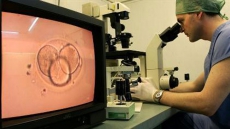As health systems across the world are trying to increase vaccination levels, a study has suggested that it is critical to understand how to address vaccine hesitancy and counter myths about vaccine safety.
Researchers from New Hampshire-based Dartmouth College and the University of Exeter in Britain found that debunking the myth that the seasonal influenza vaccine can give you the flu actually reduced intent to vaccinate among people who are most concerned about vaccine's side effects.
"Correcting myths about vaccines, however, may not be the most effective approach to promoting immunisation among vaccine skeptics, said Brendan Nyhan, an assistant professor at Dartmouth College.
The study showed that more than four in 10 Americans endorsed the myth that the flu vaccine can give you the flu, saying it is either "somewhat" or "very accurate".
Respondents, who received corrective information that the flu vaccine cannot give you the flu, were less likely to report believing in this misperception or to say that the flu vaccine is unsafe.
"However, providing this corrective information also reduced the self-reported likelihood of getting a flu vaccine among respondents with high levels of concern about vaccine's side effects, added Jason Reifler, a senior lecturer of politics at University of Exeter.
The study was conducted with a nationally representative sample of adults in the US, collected as part of the 2012 Cooperative Congressional Election Survey.
"We need to learn how to most effectively promote immunisation. Directly correcting vaccine myths may not be the most effective approach," the authors concluded.
The article appeared in the journal Vaccine.






